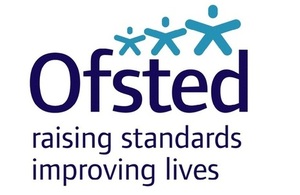Money spent on management fees cutting quality of apprenticeships
The 'Ensuring quality in apprenticeships' report has been published by Ofsted today to look at apprenticeships in more detail.

The report also assesses the quality of subcontractors providing services for colleges and training providers.
In 2011 the Skills Funding Agency introduced a policy of minimum contract values. This meant smaller providers had two main choices - to form a consortium or set up as a subcontractor for larger providers. In many cases smaller, often good providers have been penalised by the loss of funding they can use to support apprentices because their lead contractors took too high a fee for very little work, often equating to the loss of frontline members of staff.
National Director of Learning and Skills, Matthew Coffey, said:
Following criticism of the delivery of some apprenticeship programmes earlier in the year, Ofsted commissioned a rapid response survey with particular focus on subcontracting arrangements.
This report has found the introduction of the minimum contract value has forced often very good smaller providers to either work together or become a subcontractor of a larger provider. In several cases this has diluted accountability and has placed a greater distance between the learner and those responsible for learning.
Ofsted found that resulting consortia often added value to learning programmes and benefitted learners. However the report also found some unintended consequences of the policy where smaller providers became a subcontractor of the larger organisation. The criteria to act as a lead contractor are based on the size of contract rather than a track record of delivering high quality apprenticeships. Some lead contractors lacked sufficient expertise of work-based learning to quality assure the work of their subcontractors. For example, one was unaware that the subcontractor was not carrying out reviews of learners in the workplace, a contractual obligation.
Lead contractors charge smaller providers a top-slicing fee as a percentage of the contract value in return for allowing them to access the funding and supporting them in their work. This fee varied considerably and inspectors found no clear link between the quality of support and challenge and the fees charged to subcontractors.
As part of the survey report, inspectors found some of the apprenticeship programmes too short in duration to sufficiently embed the skills being developed. There were also some examples of apprentices, particularly younger ones, being used as inexpensive labour during their training and then being discarded as employees to be replaced by new apprentices.
Many apprentices were unclear about who was ultimately responsible for their training programme. Ofsted has recommended that the government and other agencies should consider introducing an independent whistleblowing hotline, so concerns and potential problems can be picked up quickly.
Notes to editors
- The report can be found online.
Media enquiries
Clive House
70 Petty France
London
SW1H 9EX
Email pressenquiries@ofsted.gov.uk
Monday to Friday, 8:30am to 6pm 0300 013 0415
Out of hours duty press officer 07919 057 359